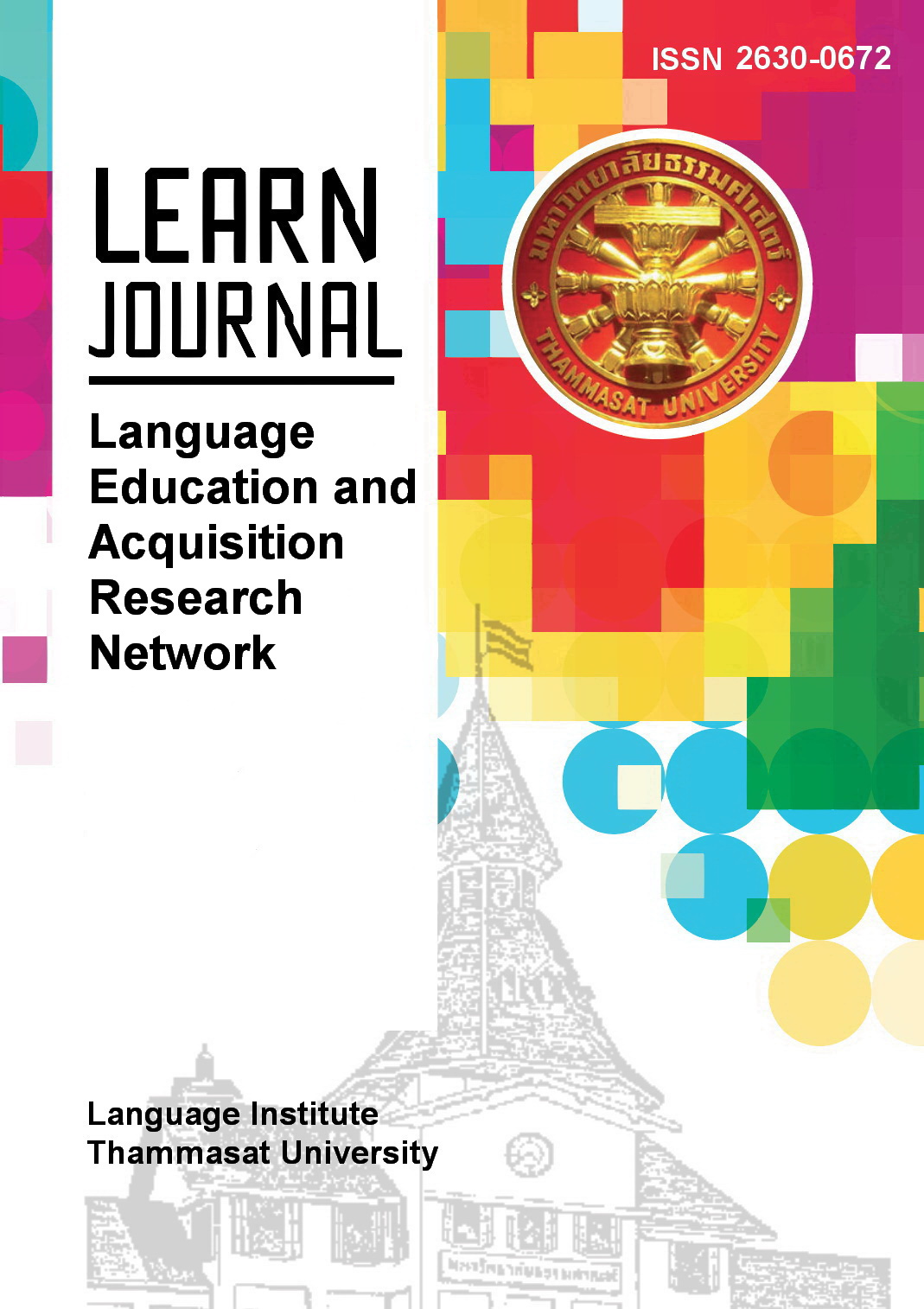Funny English in the Digital World
Main Article Content
Abstract
This paper aims to study English jokes on Facebook. Since the current generation of our students is often described as Net Geners, learning the English language via jokes posted on social media can be one of the supportive ways for EFL learners to improve their L2 linguistic competence as well as L2 humor competence. The data, or jokes, in this study were collected from one of the most popular public pages, entitled “English is Fun”. Seventy four jokes (out of 200 posts) from 1 to 16 April 2019 were collected and analyzed. The study result revealed that there were two major types of jokes: one was in a textual form while the other was a mixed-code message, or a combination of verbal and non-verbal elements. The latter was further classified into two subtypes: one had a verbal element as the primary factor to provoke humor while the other required interaction between the verbal element and non-verbal element. In addition, the findings showed that there were four types of logical mechanisms: pun, false analogy, faulty reasoning, and satire. As jokes can be a good source of teaching materials, three possible ways for using jokes in teaching the English language were suggested.


